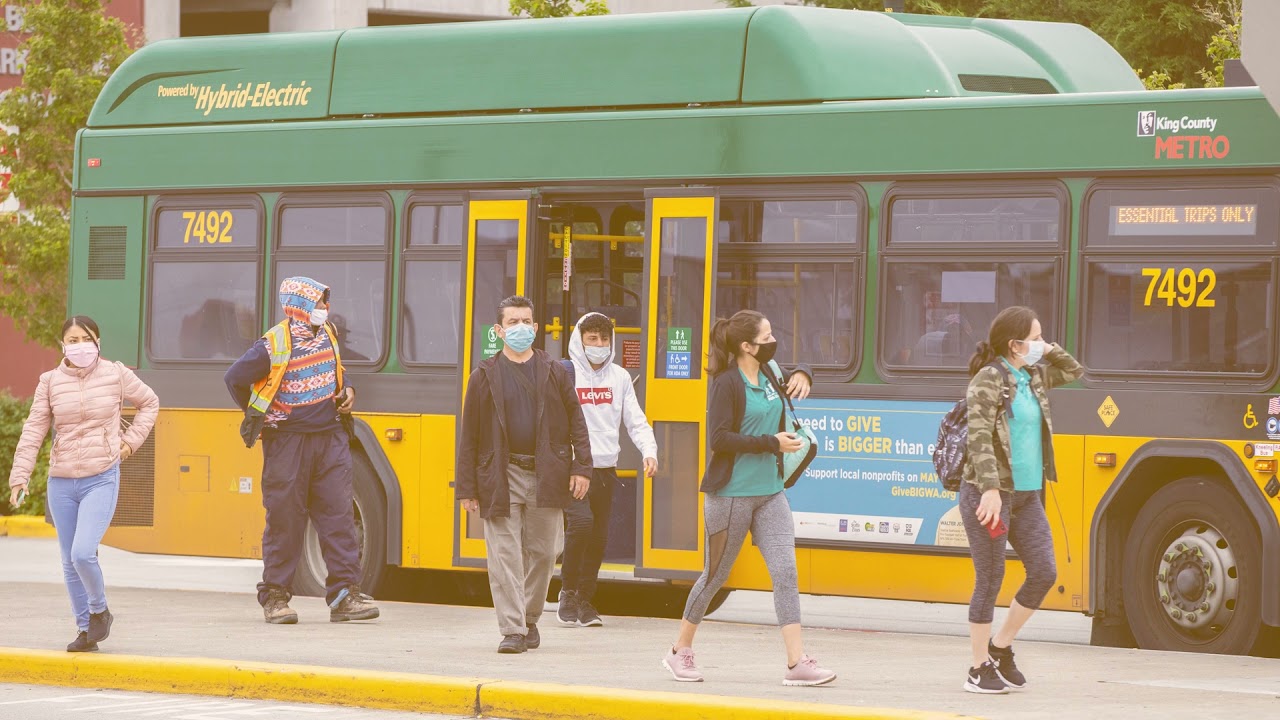Metro's Long Game
Metro’s ability to provide movement through the transit system can be life-changing.
As a mobility agency, we move hundreds of thousands of people in our region every day, helping them get to their destination. We know that mobility connects people to opportunity—and that destination is sometimes more than an actual place. It may be a new job, a better education, a critical medical appointment, or a chance to start over.
Metro’s Long Game is the blueprint to how we leverage the power of public transit to create a mobility system that advances equity by serving underserved communities, providing new economic opportunities in those neighborhoods, and combating climate change.
In order for Metro to reach our Long Game, we will:
- Build fast, frequent, reliable all-day services that are both prioritized and co-created for those with the greatest need of public transit
- Transition to a 100% zero-emissions fleet powered by renewable energy no later than 2035
- Modernize our system
- Continue to demonstrate the value of public transit to grow capacity and resources, which will result in more service and measurable outcomes
By providing safe, reliable, and equitable public transportation services, we can—and will—improve regional mobility and quality of life in King County.
Metro's enterprise initiatives
Metro's initiatives and partnerships make progress on long-term goals to center equity, modernize the system, and build back stronger.
Zero emissions
Metro is committed to reducing greenhouse gas emissions and is actively transitioning its bus fleet to zero-emissions vehicles by 2035. Metro will use a phased approach to acquire battery-electric buses, expand the trolley fleet, build the necessary charging infrastructure and supportive information technology, convert transit operations, and train and recruit needed workforce.
Service and workforce
Recognizing that reliable bus service is key for customer satisfaction and trust, Metro's Service and Workforce Initiative is focused on matching Metro's available and growing workforce to our current and future needs. By making both temporary and permanent changes to multiple areas of the organization to meet current service delivery, Metro will be positioned to grow services.
Safety, security, and fare enforcement reform
Continue to co-create, pilot, and implement recommendations that center the needs of BIPOC (Black, Indigenous and People of Color) community members and employees who are most impacted by safety and security functions. Continued engagement with communities will ensure strategies are implemented in a way that supports the vision of safety and eliminates disproportionately negative outcomes of safety and security policies and practices on BIPOC communities.
Fares
Delivering a fares system that is equitable and both easy-to-use and administer by simplifying the income-based fare program, developing a plan and timeline to transition to cashless on-board payment, updating fund management policies and confirming fare increase assumptions, and increasing access to the right fare through ORCA. This work will also interact with fare inspection approaches developed through SaFE Reform.
Advanced service management
Improve and modernize how we deliver service. Through service modernization, we will be able to better meet the evolving needs of our customers, employees, and the region—and be a model for transit agencies nationwide. Advanced Service Management aims to test delivering high frequency bus service using headway management (buses arrive at a set frequency rather than a schedule) and fall back operations (buses continually in service while operators take breaks) to increase the reliability of public transportation and reduce bus “bunching” (two buses arriving at a stop at close to the same time or simultaneously). Goals are to improve customer and operator experience by changing operational processes, testing headway management technology, and investing in route break spaces and comfort stations to better manage headway.
Organizational health
Create a culture of belonging and prioritize well-being. Develop a focus on culture and an approach to leadership that fosters respect, safety and accountability. Embracing anti-racist principles will support retention, leadership development, and make Metro a place where people want to work and thrive.
Recent highlights as we expand and improve your regional transit network
Service and Innovation
“Executive Constantine and Mayor Durkan announce Seattle voter-funded transit service contract”
Safety and Security
“King County works with community to reimagine safety and security on transit”
“Newly upgraded air filters and more fresh air on all Metro buses”
Equity
“Working upstream: King County Metro vision, policy updates focus on equity and sustainability”
Sustainability
“King County Metro to acquire new fleet of zero-emission, battery-electric buses”
“Trailhead Direct reconnects riders with the great outdoors”
Awards and Recognition
“Metro’s women-led team wins transit innovation award”
“Having a party: KEXP and Transit Operator Appreciation Day”
 Translate
Translate









